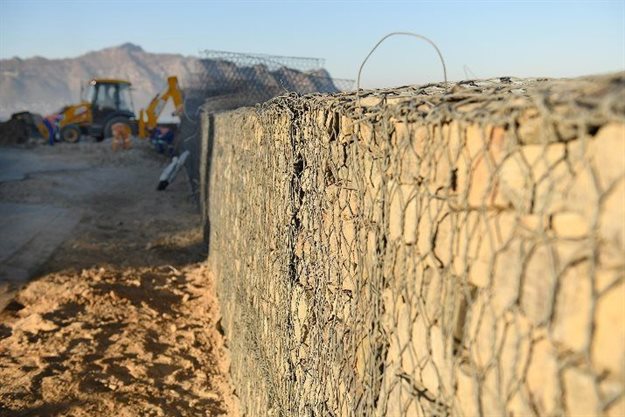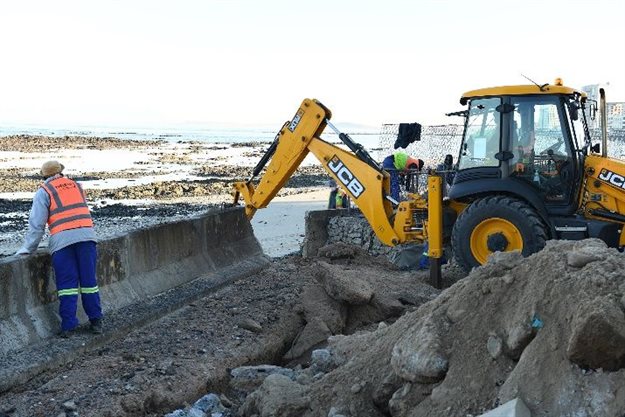
Top stories






More news

















Logistics & Transport
Uganda plans new rail link to Tanzania for mineral export boost








Constructions of the new, long-term upgrade – Phase 2 of the new Strand sea wall, is scheduled to commence in approximately two years’ time, pending an extensive and open tender process. However, a temporary repair at those two sections was urgently required to ensure pedestrian safety and prevent ongoing damage to the sea wall and a possible complete collapse of the road.
The temporary solution comprises a gabion wall, with a flexible scour toe in front (seaside) of the structure. A benefit of a gabion wall is that after it is decommissioned, around 85% of the materials in the gabion wall can be re-used in another gabion construction, thus, it has a very high recyclability value.
In terms of structural stability, the temporary coastal protection structure was designed to withstand the wave forces and the flexible toe structure was designed to settle or migrate downwards with time as the beach profile changes, therefore preventing erosion and undermining of the existing sea wall and temporary gabion foundation. So far, approximately 40% of the temporary emergency work is complete, and full completion is expected to be by the end of July 2020, pending inclement weather and tidal influence.

"I am happy with the team’s proposed alignment of the new sea wall and the planning of the new Strand sea wall, scheduled for construction in two years’ time. The condition of the sea wall had become a threat to the safety and health of the pedestrians and other road users and we could not allow the situation to remain as it was," said the city’s mayoral committee member for spatial planning and environment, Marian Nieuwoudt.